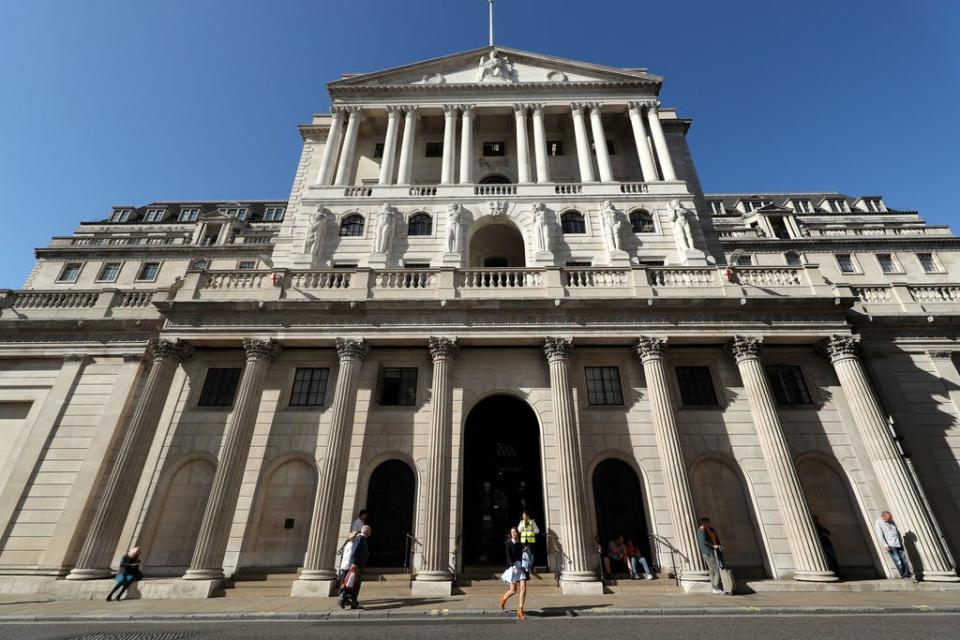Bank of England poised to ramp up interest rates as inflation bites

TWITCHY central banks are poised to aggressively hike interest rates this week in a bid to combat soaring inflation, but they risk plunging already wobbly economies into recession say experts.
Both the US Federal Reserve and the Bank of England are expected to put rates up this week, with more increases to follow.
That will automatically increase the cost of new mortgages and other loans, in turn cutting what consumers have available to spend in shops and on leisure activities.
Overnight the Reserve Bank of Australia increased rates from 0.1% to 0.35%, the first rise in interest rates for 11 years.
Governor Philip Lowe said: “The board judged that now was the right time to begin withdrawing some of the extraordinary monetary support that was put in place to help the Australian economy during the pandemic.”
That view will be echoed in most major economies. The Australian move was higher than expected, increasing talk that the Bank of England might move faster than expected, putting rates up by 0.5 percentage points a time, rather than by 0.25 percentage points.
Some say it should do just that to tackle inflation. Deutsche Bank said in a note today that it thinks there is little chance of a 50 basis point rise.
Economist Sanjay Raja said: “The MPC forecasts suggest only a modest level of tightening needed to bring the economy back into equilibrium. While some on the committee see upside risks to the inflation and growth outlooks….most agree on the need for limited or modest tightening.”
The Bank is expected to increase rates from 0.75% to 1%, the highest level since 2009. Inflation hit 7% in March.
The fear is that price rises are stubborn and will remain in place even as the economy slumps – stagflation, in economic jargon.
Ruth Gregory at Capital Economics said: “Rates will need to rise further,” in order to “lean against the risk that inflation becomes sticky as wages rise.”
In America, the Federal Reserve is expected to put rates up by a half percentage point on Wednesday, with a similar move due in June and perhaps again in July. That would be the fastest series of rate hikes since 1989.
Jon Steinsson at the University of California said: “It is appropriate to do things fast to send the signal that a pretty significant amount of tightening is needed.”

 Yahoo Finance
Yahoo Finance 